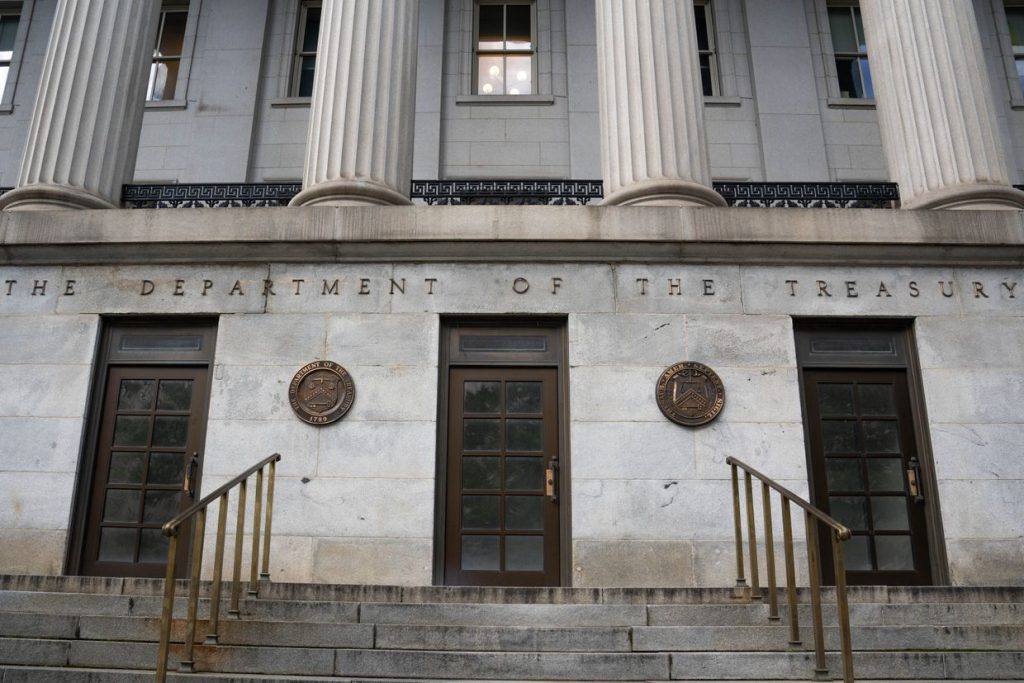The United States has taken action against two entities accused of promoting disinformation campaigns from Iran and Russia in an attempt to influence American voters prior to the 2020 election. The Treasury Department announced sanctions on these groups, stating that they aimed to sow divisions among Americans and undermine confidence in the election process. U.S. intelligence agencies have identified both countries as responsible for disseminating fake news stories, videos, and social media posts to manipulate voters.
The sanctions target the Moscow-based Center for Geopolitical Expertise, which is accused of creating, funding, and distributing disinformation about American political candidates, including the use of AI-generated deepfake videos. The center’s director is alleged to have collaborated with Russian military intelligence agents involved in cyberattacks and sabotage against Western nations. Using artificial intelligence, the center generated fake videos and operated numerous fake news websites that appeared legitimate. Additionally, they paid U.S. companies to host pro-Russian content in an effort to influence public opinion.
The Cognitive Design Production Center, affiliated with Iran’s Revolutionary Guard, has also been sanctioned for its role in inciting political tensions in the U.S. since at least 2023. The group is accused of encouraging protests related to international conflicts, such as Israel’s war with Hamas in Gaza. U.S. intelligence agencies have previously accused Iran of hacking into the accounts of high-profile American officials, including figures from Donald Trump’s campaign. These actions by Iran, along with those of Russia and China, were identified as efforts to undermine trust in U.S. democracy leading up to the election.
In addition to the U.S. sanctions, the European Union is reportedly preparing to impose its first sanctions on Russian intelligence officers and media entrepreneurs involved in disinformation campaigns. The proposed measures would target over a dozen individuals and three entities, aiming to counter destabilizing operations globally. The sanctions are part of efforts to combat the spread of disinformation and maintain the integrity of democratic processes. The actions taken by both the U.S. and EU highlight the growing concern over foreign interference in elections and the manipulation of public opinion through online platforms.
The influence of foreign governments in spreading disinformation has become a significant concern for many countries, as seen in the case of the U.S. sanctions on entities from Iran and Russia. The use of technology, such as artificial intelligence, to create misleading content and manipulate public opinion has raised alarm bells among policymakers and intelligence agencies. By targeting these groups and individuals involved in disinformation campaigns, governments are sending a clear message that such actions will not be tolerated and measures will be taken to protect the integrity of democratic processes. The coordinated efforts by the U.S. and EU to impose sanctions on those responsible for spreading disinformation demonstrate a commitment to countering these threats to democracy and maintaining public trust in elections.
As the digital landscape continues to evolve, governments must remain vigilant against foreign actors seeking to exploit online platforms for malicious purposes. The actions taken by the U.S. Treasury Department and the European Union signal a collective effort to address the growing threat of disinformation campaigns and foreign interference in elections. By sanctioning entities and individuals involved in spreading fake news and manipulating public opinion, authorities are taking steps to safeguard the democratic process and protect the integrity of elections from undue influence. The enforcement of sanctions serves as a deterrent to those seeking to undermine democratic institutions through the dissemination of false information and divisive narratives.















